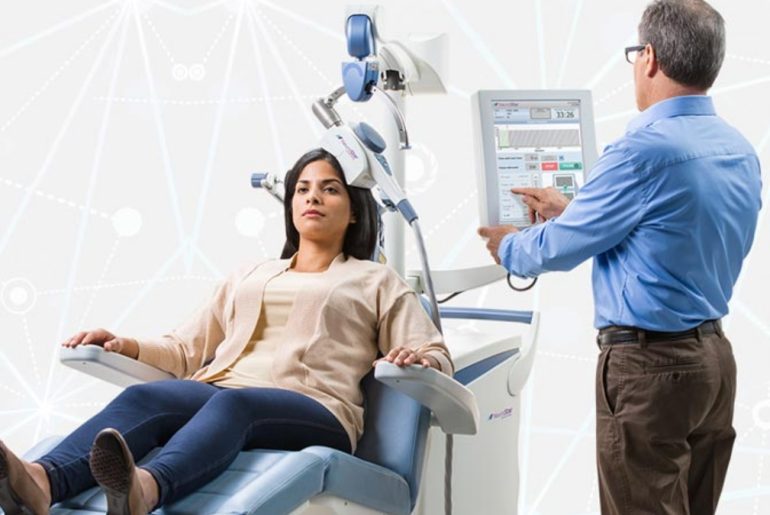Transcranial Magnetic Stimulation (TMS) is a non-invasive treatment method of brain simulation that uses electromagnetic induction to produce changes in neuronal activity in areas of the brain involved in mood regulation, such as the prefrontal cortex. An insulated coil is placed over your scalp and the coil generates quick magnetic pulses, which move easily and harmlessly through your skull into the brain. As each magnetic pulse passes, brief activity of the brain cells is induced. Moreover, this brain activity is regulated by increasing or decreasing the frequency of pulse delivery. In this post, we will tell you why it is important to have your TMS procedure done by the Greater Lowell Psychiatric Associates, LLC.
Conditions treatable with TMS therapy
Transcranial magnetic stimulation is mainly used to provide a long-lasting solution to people dealing with depression and continue to experience symptoms. Numerous researches are being carried out to determine if TMS can be used to treat mental health and neurological conditions such as:
· Dementia
· Chronic pain
· Post-traumatic stress disorder (PTSD)
· Autism
· Smoking
· Anxiety
· Fibromyalgia
· Obsessive-compulsive disorder (OCD)
· Bipolar disorder
· Migraines
How does TMS therapy works
TMS is an outpatient procedure that is usually performed by a TMS physician or TMS technician. During the actual procedure, your technician will require you to wear earplugs to minimize the clicking sounds of magnetic impulses. No anesthesia is used in this procedure, thus you will be awake during the entire treatment. Your technician will also measure your head to determine where to position the magnetic coil. Once the insulated coil is placed above the front area of your brain, the TMS machine will be powered on. You will hear clicking sounds as the magnetic impulses are transmitted. You will also feel a knocking or tapping sensation beneath the coil. TMS therapy takes about 30-60 minutes, and you are allowed to go home after the procedure to resume with your everyday activities. Your healthcare provider will recommend you to repeat the procedure for five days a week within four to six weeks. However, the length of your therapy is largely dependent on how you respond to the medication.
Who is not a suitable candidate for this treatment?
Although Transcranial Magnetic Stimulation is considered generally safe, it is not fit for everyone. You are advised to avoid this therapy if you have any of the following in your head:
· Permanent piercings
· Metal plates
· Bullet pieces
· Aneurysm coils or clips
· Brain or neck stents
· Cochlear implants
· Facial tattoos with metallic ink
· Electrodes
· Deep brain stimulators
What are the side-effects of TMS?
TMS therapy is a non-invasive procedure and associated with a few side-effects. The most common side effect reported by patients who have undergone TMS is headaches. However, these headaches are mild and usually diminish within the course of the procedure. There have also been some reports of TMS patients experiencing facial twitching or painful scalp sensations.
At Greater Lowell Psychiatric Associates, we use state-of-the-art technological devices from CloudTMS, to provide our clients with effective TMS care. Dr. Winfield and the well-experienced will provide you with personalized TMS care to ensure you benefit the most from the treatment. Get to learn more about our services by booking for an appointment online or call us at 978-291-6978.

